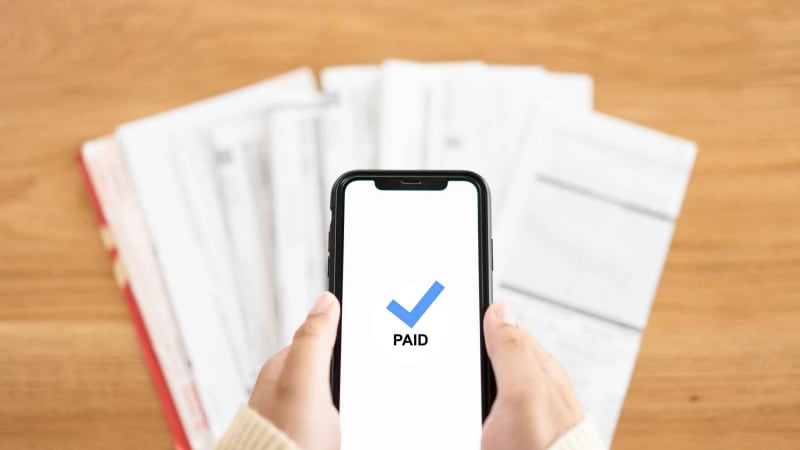When is the right time to consolidate your credit cards?

Consolidating your credit card debt can simplify your financial life and may help save you money. Whether you seek credit counseling, roll your card debt onto a balance transfer credit card or take out a debt consolidation loan, consolidation can move your debt from multiple cards to a single monthly payment and could lower your interest rate in the process.
While credit card consolidation can improve your financial health, it's important to understand what each consolidation option entails. If you opt for counseling, you must agree to a repayment plan and will likely have to pay fees. Balance transfer cards and loans may also charge fees, require a good credit score to qualify and an Annual Percentage Rate (APR) will be applied after a low or no interest rate promotional period.
Yet no matter which consolidation option you choose, the key is to pay off what you owe, and to learn more about the many ways you can better manage credit card use in the future.
How does credit card debt consolidation work?
Credit card debt piles up when you fail to pay off your monthly card balances in full, burdening you with hefty interest payments that add to your overall balances. Credit card debt consolidation can tackle both of these problems by:
- lowering the interest rate on your debt
- reducing what you owe in interest each month
Credit card debt consolidation doesn't eliminate what you owe—you still have to put a debt reduction plan in place to pay it off—but it can make your interest rate more manageable and, by rolling all of your card debt into a single payment, streamline your finances.
Consolidating credit card debt also comes with some costs. You're likely to pay fees on an initial or an ongoing basis, depending on what you choose. You might also discover that consolidating debt via a balance transfer card or consolidation loan doesn't greatly reduce your interest rate, so you will have to weigh the benefits of bringing your debts to one bill versus the trouble of managing them separately.
What are the types of credit card debt consolidation?
There are several options for consolidating your credit card debt. Here are the benefits and drawbacks of the most popular:
1. Credit counseling
Non-profit credit counseling services exist nationwide to help consumers get out of credit card debt.
Benefits of credit counseling
- Counseling services may be able to negotiate lower rates with your creditors.
- Counselors can help you set up a debt management plan that puts you on a sustainable path to repayment.
- Counselors can bring many of your outstanding debts into a single payment plan, making it simpler to budget for and manage your debt.
Drawbacks of credit counseling
- Counseling organizations, even not-for-profit ones, may charge monthly fees.
- You might have to take part in a negotiated debt settlementOpens overlay, which can appear on your credit report as a negative resolution for up to seven years and hurt your credit.
2. Move some or all of your card debt to a balance transfer card
Balance transfer credit cards, offered by many banks across the country, are designed for cardholders who want to pay down an existing balance.
Benefits of balance transfer cards
- Balance transfer cards often offer lower interest rates than other credit cards.
- Many balance transfer cards come with no annual fee.
Drawbacks of balance transfer cards
- A balance transfer card's APR may not be lower than the interest rate you're currently paying: be certain to understand the APR on your current credit cards before you commit to a balance transfer.
- You may be subject to a high APR on any balance that you don't manage to pay off before the low or no interest rate promotional period expires.
- Balance transfer cards could require you to pay a transfer fee on either each transfer or as a percentage of the amount transferred.
3. Take out a personal debt consolidation loan
Personal loans are unsecured and can be used for many different things, including debt consolidation. Their interest rates will vary, depending on your credit score, with 24-month personal loan interest rates ranging from 10.36% to 10.63% in 2019Opens overlay.
Benefits of personal loans for debt consolidation
- Depending on your credit score, they might carry a lower APR than your credit cards.
- They usually offer a longer term than a balance transfer card's low or no interest rate promotional period.
Drawbacks of personal loans
- A personal loan might not offer a lower interest rate than your credit cards, if your credit score is poor.
- Personal loans may charge origination fees.
4. Borrow against your home equity or retirement savings
Loans taken out against your home or retirement account (like a 401k) are secured by real assets.
Benefits of home equity or retirement loans
- Because they're secured, these home equity or retirement loans typically have very competitive interest rates and often also allow for higher loan limits.
- Home equity loans and retirement fund loans can have longer repayment periods than personal loans, giving you more time—and therefore lower monthly payments—to tackle your debt.
Drawbacks of home equity or retirement loans
- Home equity or retirement loans often come with origination fees.
- There may be restrictions on how retirement loans can be used, so be sure to read the conditions associated with your retirement loan.
- If you fail to repay a retirement loan, you will be charged hefty penalties that will reduce the value of your nest egg.
- If not paid on time, you may have to pay tax on the interest on your retirement loan.
- If you fail to repay a home equity loan, you could lose your home.
How does credit card debt consolidation affect your credit?
Consolidating your credit card debt might affect your credit in good and bad ways.
How credit card debt consolidation can improve your credit:
- Reducing your overall debt by consolidating it and paying it off is obviously a huge benefit for your credit score. Not only does it reduce the amount you owe, versus the amount of credit extended to you (your utilization rate), consistently paying off the debt will have built you a positive payment history. Reducing your utilization rate and making consistent payments can lead to improvements to your credit score.
- Debt consolidation means your old credit cards now have a zero balance, and a great individual utilization rate. If you keep these accounts open their zero % utilization rate may improve your credit score.
- Debt consolidation can stop your unpaid balance from growing as quickly, so you can get a handle on what you owe, and stop your credit score from worsening.
How credit card debt consolidation can hurt your credit:
- Opening new balance transfer cards or taking out loans will result in hard inquiries being placed on your credit report. New account activity may account for a small percentage of your credit score.
- New accounts through a debt consolidation loan or balance transfer credit card will also lower your average account age. An account with a long and positive history can contribute favorably to your overall score.
Credit card debt consolidation tips
It's possible for you to consolidate credit card debt on your own. First, you should aim to understand what you owe and what your current interest rates are. Then, investigate all of your options to find the best solution for your needs. Once you have a consolidation plan in place, commit to smart financial behaviors that will move you towards a zero balance.
- Identify where you stand today. Taking a close look at your finances can be scary, but you can only take action when you understand the reality of your debt and income. Gather all of your credit card statements for a full picture of your financial health, being sure to note your current balance and minimum payments as well as your cards' APR.
- Investigate all of the consolidation options available to you. Do your research on what each option costs to access, and on an ongoing basis, and whether you can meet the monthly payments required to clear all debt before higher interest rates kick in.
How to get started with consolidating your credit card debt
Credit card consolidation can help you reduce what you owe in interest and help put you on the right track to paying off your card debt. If you are unsure of where to start, you may find it helpful to work with a financial counselor to go over your options. Be sure to navigate your consolidation options carefully and map the full cost of consolidating before you get started. By carefully considering your current debt obligations and the debt consolidation options available to you, you can build a financial plan that reduces your credit card debt and improves your financial health.



